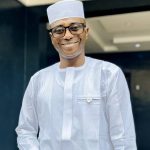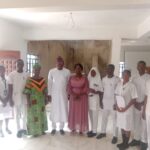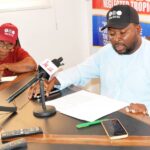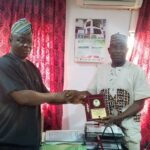





The Fisheries Society of Nigeria (FISON) convened a stakeholders meeting to discuss critical issues affecting the fisheries sector and explore collaborative strategies for sustainable fisheries development in Nigeria.
In his opening remarks, Professor Olufeagba emphasized that FISON is a structured society committed to promoting and coordinating activities within Nigeria’s fisheries subsector. He highlighted that the stakeholders meeting aims to foster collaboration, enhance research, and promote sustainable fisheries practices to ensure long-term sectoral growth.
Professor Olufeagba also raised concerns about declining fish stocks due to overharvesting, overfishing, and illegal, unregulated fishing activities. He stressed the urgent need for proper funding of institutions to implement meaningful, community-based strategies for sustainable fisheries management.
Representing the Honorable Commissioner for Agriculture and Food Security, the Permanent Secretary, Engr. Segir Abdulsalam, reiterated that the Kogi State Government, under the leadership of His Excellency, Alhaji Ahmed Usman Ododo, remains committed to fisheries development. He highlighted training and empowerment programs for fish farmers as part of the government’s broader efforts to support the agricultural sector.
Additionally, he noted the government’s initiatives in waste management and public health, which have potential implications for fisheries sustainability and food security.
Speaking at the event, the Director of Fisheries, Usman Sule Umoru, outlined the Ministry’s strategies to develop the agricultural sector, including fisheries and aquaculture. He emphasized plans to:
Improve fisheries infrastructure
Enhance research and development
Promote sustainable fishing practices
Also in attendance, Professor Olufunmilola Alabi, Dean, Faculty of Agriculture, Federal University, Lokoja, acknowledged the importance of the fisheries sector in Nigeria’s economy. She stated that the university is actively working with stakeholders to develop research-based solutions that will unlock the full potential of Nigeria’s fisheries industry, ensuring food security and economic growth.
A prominent fish farmer, Mr. James Adedoyin, expressed optimism about the future of fish farming in Kogi State, citing the state’s great potential for aquaculture. However, he raised concerns over the rising costs of fish feed and other inputs, which have made it difficult for fish farmers to break even. He called on the government for more support to enhance productivity and efficiency in the sector.
The stakeholders meeting underscored the urgent need for strategic partnerships, increased investment, and policy reforms to drive the growth of Nigeria’s fisheries sector. With government backing, private sector participation, and academic research, the industry is poised to become a significant contributor to food security and economic prosperity.
Salawu Patience
Information Officer
Ministry of Agriculture and Food Security







